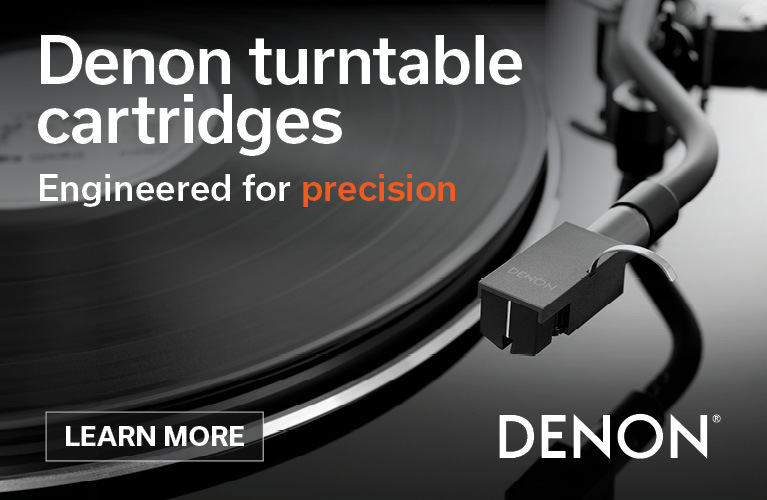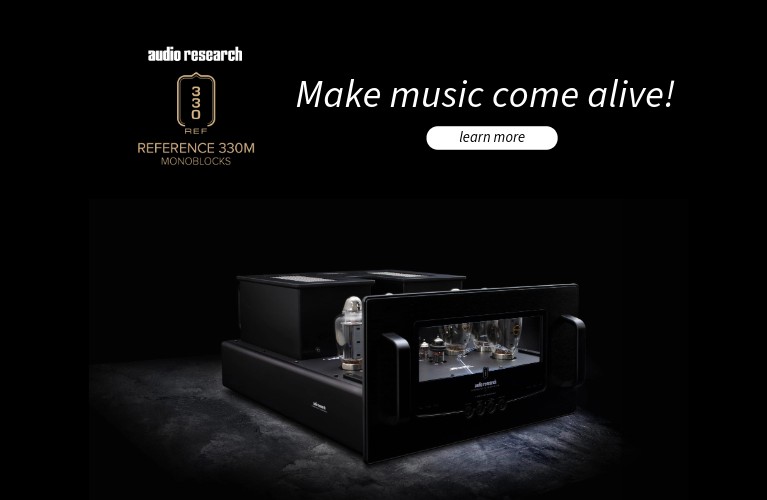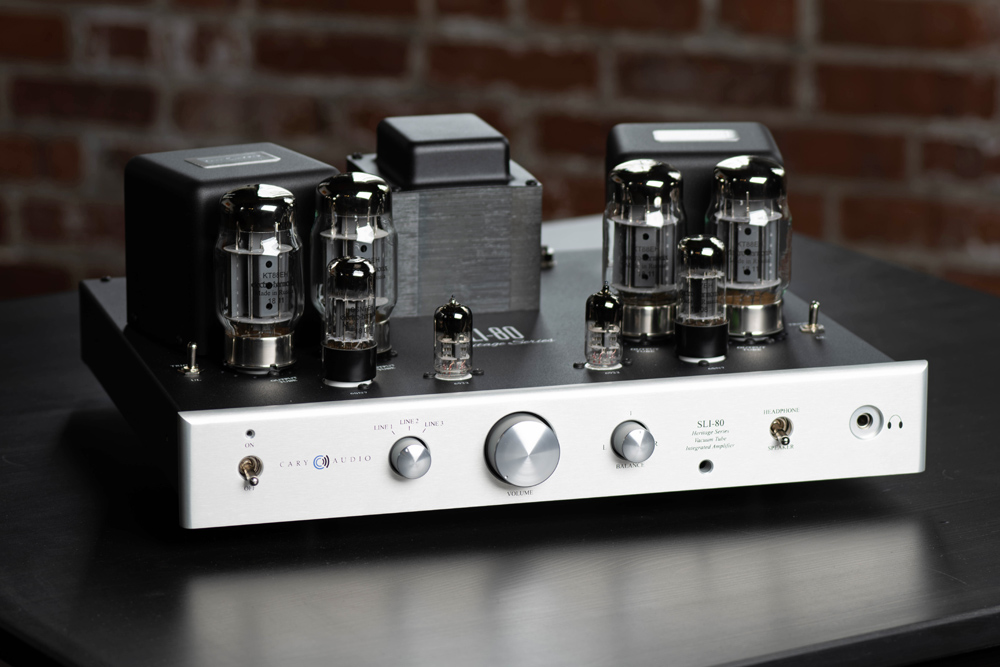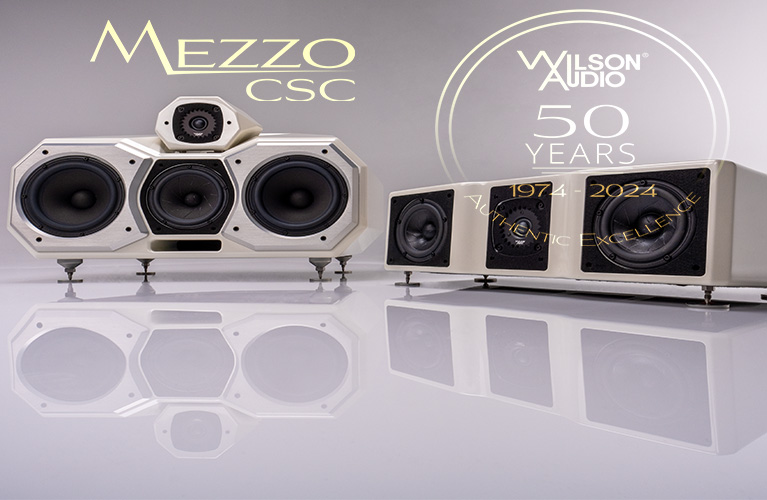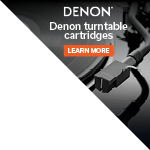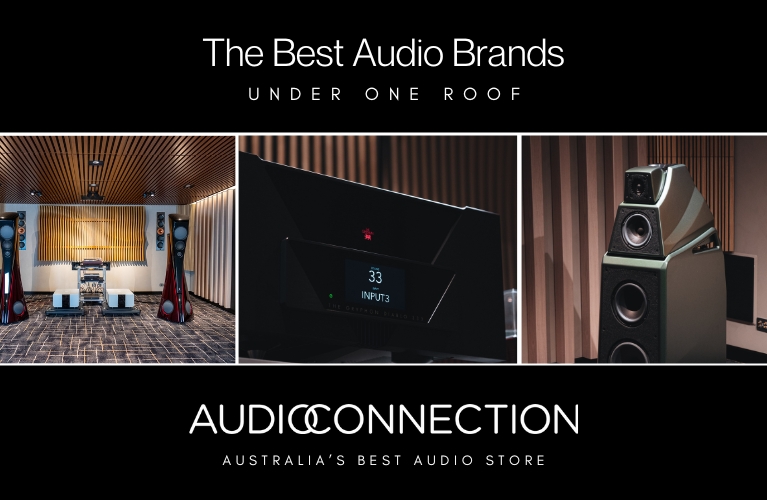Contrary to stale audiophilia lore, it can be said that just about all competently designed amplifiers, regardless of technology, can produce a realistic semblance of the tonality of instruments and the human voice. Yet, when it comes to true ‘tone’, many music enthusiasts and audiophiles persist in believing the technology that wrangles the purest timbral qualities is inherent in the perennial vacuum tube (or valve, per UK and Australia). Regardless of the technology of choice, whether valve, transistor, or ‘digital’ amplification, there’s no denying that the relative circuit simplicity of valve-based amplifiers can produce an extremely natural and convincingly realistic representation of instruments and voices. At hand at SoundStage! Australia HQ, and resplendent with an impressive array of ‘glass’ perched on its top panel, is Cary Audio’s SLI-80HS which, while seemingly simple on the surface, holds a couple of aces up its sleeve. Can this unassuming integrated deliver on the promise of purity and musical beauty?
Twin Personalities
It seems a lifetime ago, especially in light of, at the time, the imminent event that was to befall the world, but it was back in December 2019 that I reviewed the SLI-100 integrated amplifier from Cary Audio. That 100 watts, Ultra-Linear Push-Pull integrated delivered a solid performance, with good dynamic expression and an overall respect to musicality. That enjoyable experience with the SLI-100 somewhat prefaced what I could be expecting from the SLI-80HS which, despite being a product of the same maker, is a very different animal altogether.
It’s worth mentioning here that Cary Audio also offers some solidly engineered solid-state amplification, in addition to a selection of digital source and configurable multi-channel-based products.
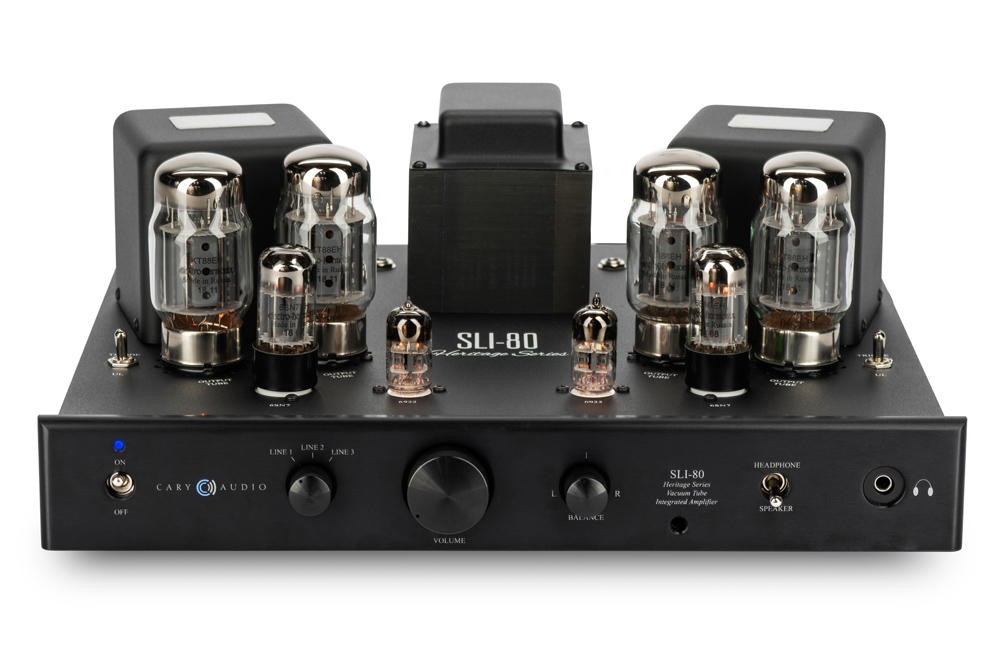
The 'Heritage Series' SLI-80HS is a dual mode Class-A/B-1 push-pull amplifier employing a negative fixed bias supply. Cary Audio rates the amp as being capable of offering a solid 80 watts in Ultra-Linear Push-Pull operation while also providing a potentially sweeter, tonally richer option via its 40 watts Triode mode. This, effectively, offers the user two amplifiers in the one chassis. Actually, three amplifiers, counting the in-built headphone amp.
In addition to offering two distinct musical flavours, the option of switching between the two modes allows better matching to the speakers at hand. A more demanding speaker, such as one with more moderate efficiency or a lower impedance plot, would be more suited to the Ultra-Linear setting. Generally speaking, Ultra-Linear Push-Pull mode will have more control over low frequencies, a slightly more dynamic presentation and maybe even a tad more detail.
Again, in general terms, Triode mode will give a sweeter balance, richer tonal textures and an enhanced sense of ‘musicality’, or musical flow, at a partial expense (potentially but not always) of the Ultra-Linear Push-Pull qualities described above.
Cary Audio further describes the circuitry, “Negative feedback is derived from the 8 ohms tap on the output transformer secondary. This feedback circuitry is used to reduce the noise floor and improve the speaker damping characteristics. Only 4dB of feedback is utilized. The phase inverter is a self-balancing split load configuration utilizing the 6SN7 octal base dual triode. The preamplifier circuit is a Series Regulated Push-Pull (SRPP) Class-A triode voltage amplification stage direct coupled to the phase inverter. The power supply in the SLI-80HS features a 200% duty cycle EI laminate power transformer.”
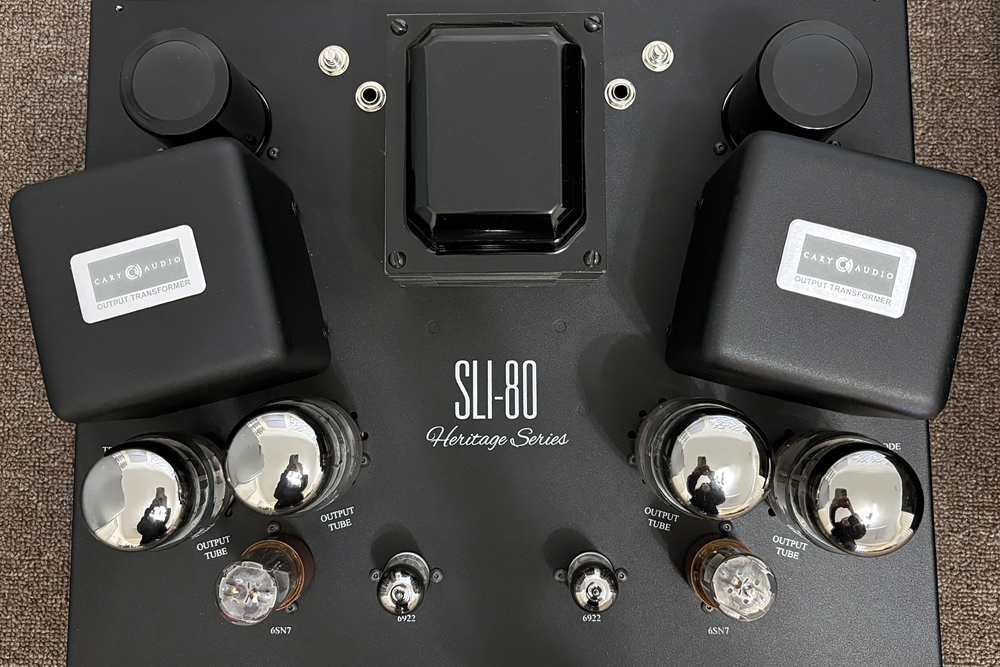
While on the subject of transformers, the two output transformers which flank the power transformer, have been designed in-house at Cary Audio. The circuit has been engineered to feature fast overload recovery (post-clipping), with Cary Audio stating that, “the SLI-80HS will overload symmetrically at any frequency in the audio band-pass. The SLI-80HS will also yield faithful reproduction of extremely low frequencies at full output levels”.
The valve configuration includes two 6922 valves for the preamplifier section’s Input Buffer (the inputs are direct-coupled, eschewing coupling capacitors), two 6SN7 valves for the Pre-Driver/Phase Inverter and finally four KT88 valves as the output devices. The KT88 valves are interchangeable with 6550, EL34, 6CA7, KT77, KT90, KT120 models for further sonic flavour experimentation.
The valve circuit is, of course, fully biased at the factory. Re-biasing will be required periodically as valves are changed for new ones. Cary Audio provides easy to follow instructions on biasing the circuit for each channel. This is conducted with a supplied ‘meter plug’ cable rig which plugs into a 6.5 mm jack socket. Adjustments can be made via a trim pot accepting a plastic flat-head screwdriver and the SLI-80HS should be set to DC current of between 75 mA and 85 mA. Overall, the procedure is quite simple.
The SLI-80HS’s rear panel is arranged fully symmetrically and mirror-imaged, with the left and right channel sockets being separated by the centrally placed IEC input. Connectivity includes three line level inputs via high quality RCA sockets, a subwoofer output, and those almost ubiquitous translucent plastic insulation-covered gold plated speaker binding posts. The speaker output can be switched to better match either 8 ohms or 4 ohms loudspeaker loads. A further output (6.5 mm jack) from the in-built headphone amplifier is located on the front panel.
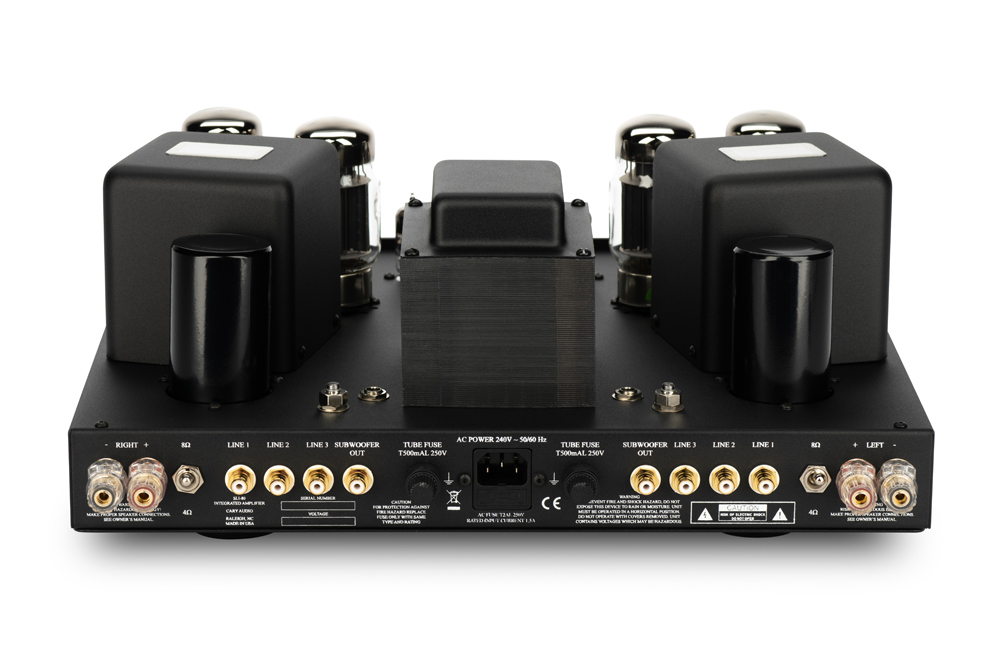
Cary Audio’s specifications for the SLI-80HS’s frequency response are 19Hz to 23Khz +/- 0.5dB at full power output, noise and hum is 82dB below rated output, input impedance is 100 kohms, and maximum gain is 34dB.
For further potential improvements in performance, Cary Audio offers a number of extra cost upgrades to the electronic components in the SLI-80HS’s circuitry. These include Mundorf MCap Supreme EVO SilverGold capacitors, Jensen Capacitors, Hexfred rectifiers, mil-spec Grayhill Switches, and WBT speaker binding posts. Also available as an extra cost option is a cage cover for the top panel to protect inquisitive little fingers.
Anti-Trope
I started off setting the amp in Triode mode while planning to switch to Push-Pull for comparison purposes at some stage through my time with the SLI-80HS amp. Triode came across with all of the sonic associations we accept as being typical of the… genre. Yet, the SLI-80HS presented some quite surprising musical insights which defied the stereotype. Those telling insights were carried across four very different sets (including my own reference Wilson Audio Alexia V, a speaker which, as outstanding as it is, is by no means easy to drive).
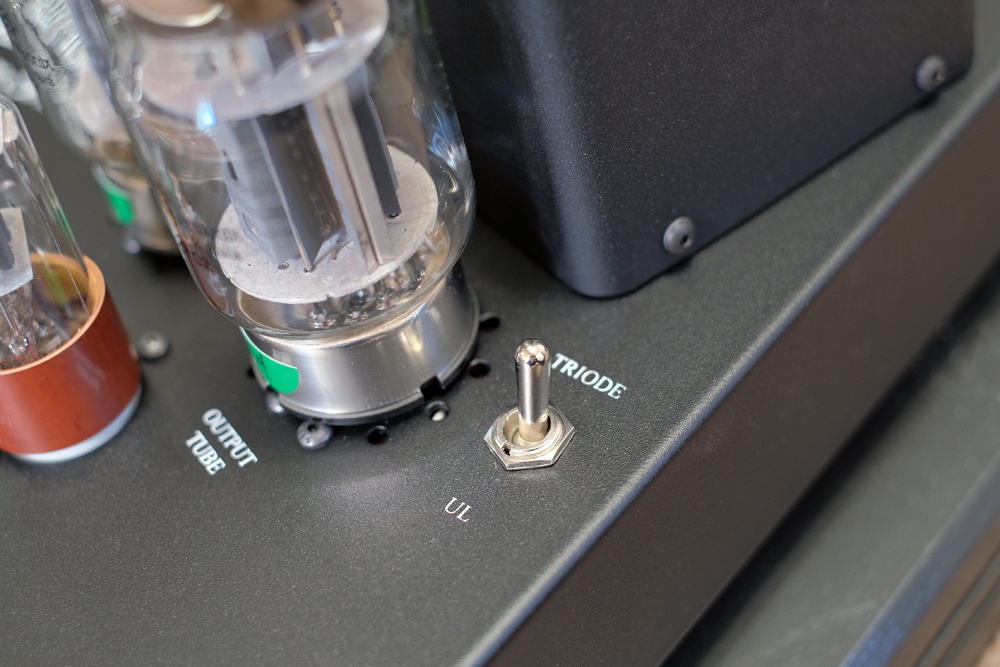
In Triode mode, I found the low frequencies to be full, yet nicely nuanced and surprisingly solid in terms of relative tightness. OK, the bass control would not be to the level of a high-current, high power, solid state behemoth like a big Krell or Gryphon (the Ultra-Linear setting gets closer to those giants), but certainly not far from the capabilities of a good Push-Pull amplifier. At least in my neutrally-damped room, there was zero boom, but a fullness with a slight softening of leading edge transients which, regardless, still provided an enjoyable and engaging low frequency depiction.
The true magic was in the highs and midrange. The SLI-80HS has a sweetness and a palpability it endows to vocals and midrange-based instruments that is… captivating. In the last few reviews, I’ve been using Lhasa’s self-titled release as one of my test albums for vocal purity backed by well-recorded instruments. On the track “Love Came Here” the singer’s vocal is clearly separated and present, while the snap of the snare drives the track along. When the guitar solo twangs in, the plucked notes are superbly detailed and discerned from the rest of the instruments, yet somehow, the integrity of the composition remains undiluted by the clarity.
Playing the same “Love Came Here” track in Ultra-Linear mode offered a slightly faster sense of drive to the rhythm section, a subtly punchier and more dynamic snare, and a tad more tightness to the bass guitar. Overall dynamics were slightly elevated. On the other hand, a little magic was lost in the mids and highs on Lhasa’s voice, while the instruments’ tonal qualities were less rich.
Mind you, this is in direct comparison from mode to mode. In isolation, both amplification types were superbly musical and satisfying. Plus, it should be mentioned that, overall and irrespective of what mode tickles your fancy, the SLI-80HS is an outstanding example of modern valve amplification technology.
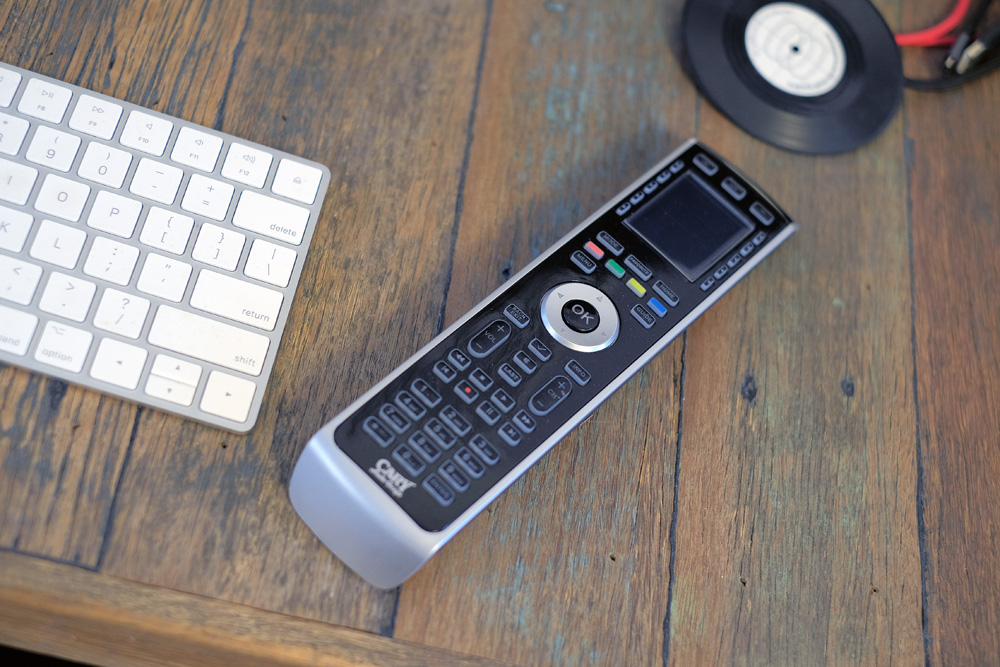
If you’re a lover of jazz, you’ll revel in the SLI-80HS and its music-making capabilities. Especially in Triode mode, the insights into acoustic instrument textures and tonal complexities is stunning. The SLI-80HS presents music in beautiful renderings which individualise each instrument, never compressing musical strands and always engaging the listener… you’ll be pulled in, and you’ll struggle to press stop (or lift the tonearm).
On Makiko Hirabayashi Trio’s “Kilden” from the excellent Meteora album, the SLI-80HS handled the dynamic music with very good contrasts from soft to loud (UL mode a tad more potently) and superb tonal purity (UL subtly less so, but still very good, as is inherent in valves regardless of mode), especially through the piano and the acoustic bass sections. There’s a beautiful airiness, delicacy, and extended harmonic decay to the cymbals and great transient response when the drummer slams the snare and toms. Again, I stress the sheer listenability offered by this exceptional amplifier.
Can the SLI-80HS rock? Well, maybe a tad harder and rawer in Ultra-Linear (Triode mode is no slouch, however). The tempo oscillations of 35007’s “Evaporate” for the album Liquid are exposed with great rhythmic flow, a stream of music which envelops and embraces you in grandeur. The same is shown on Colour Haze’s “Silent” from their album All, where the softly intricate leads to the powerfully majestic (and especially through the last two or so minutes of the track “Moon” from the same album). The SLI-80HS does not hiccup, nor faulter, nor hesitate through the demanding passages, where other valve amplifiers may congeal and harden the musical presentation.
Either on Triode or Ultra-Linear, I absolutely relished the SLI-80HS’s handling of large orchestral works and more intimate chamber music. There was an all-enveloping, moving heaviness to “Funeral March” from Reference Recordings’ Serebrier Conducts Serebrier, and watch out when the big drums hit! It’s a slowly building composition which briefly explodes with thunderous explosions of percussion.
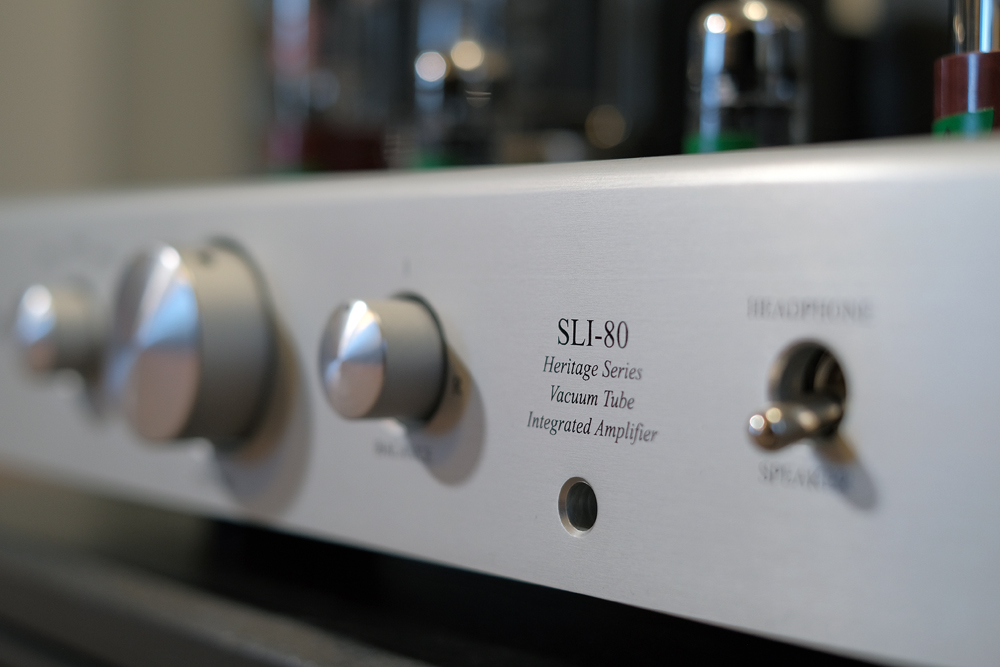
Goosebumps and back-of-the-neck chills are signs of a piece of music is delivered by the hi-fi in a way that totally entrances. Be ready to hold back tears listening to Jacqueline Du Pré’s masterful and devastatingly beautiful performance in HMV’s iconic Elgar Cello Concerto LP with the London Symphony Orchestra under Sir John Barbirolli.
The SLI-80HS is a consummate communicator, presenting the performance in all its splendour and emotive poignancy. The amplifier can transmit enormous soundscapes with soundstages which are wide, tall and deep, if captured that way in the recording in the first place. Distributed within the generous landscapes are images which are well focused, and which mimic an almost true-to-life presence.
Conclusion
With its in-built amplification modes, Cary Audio’s SLI-80HS will quench the thirst of the most demandingly dehydrated music lover. It will compel them to experimentation while opening vistas to diverse musical experiences. The SLI-80HS offers alternate flavours, both stand-ins of equal talent. All under one roof, or, should I say, in one chassis. Effectively, you get two amplifiers in one with alternate perspectives.
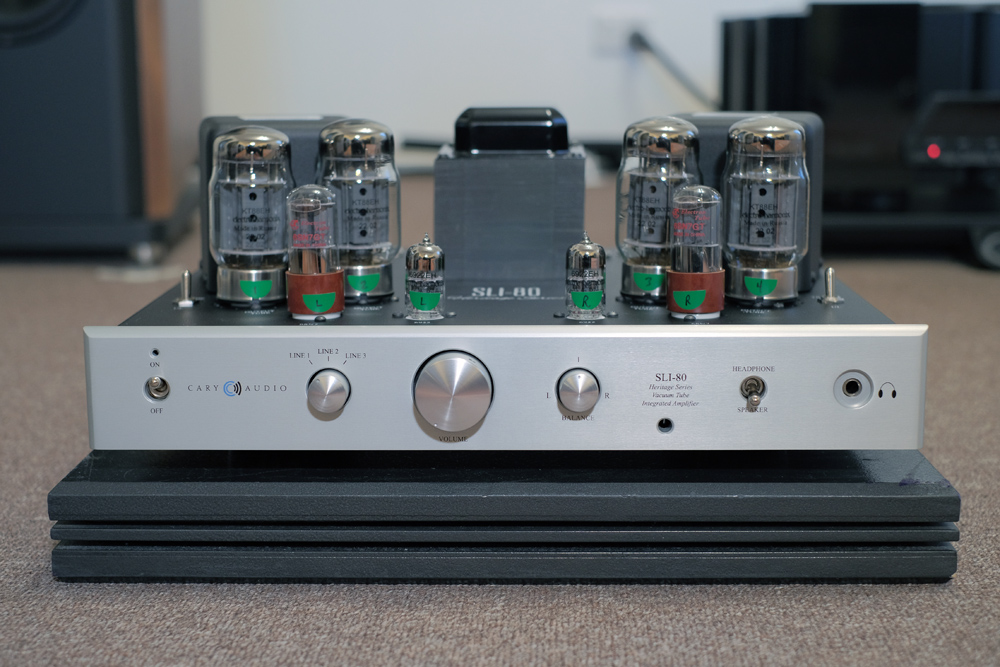
Sound flavours aside, the SLI-80HS is built like a tank, promising longevity and reliability while offering a further listening option via its in-built headphone amplifier. It also presents a more than adequate selection of inputs and outputs, high quality components, and an upgrade path for a potentially more heightened music listening experience. Yes, sonically, it’s a superbly musical, capably dynamic, thoughtfully controlled performer which will satisfy the most demanding audiophile.
The Cary Audio SLI-80HS is an American valve-powered high-octane cruiser, a Cadillac smooth rider… and it drove like an eight-speed pure musical joy machine. Most enjoyably recommended.
… Edgar Kramer
This email address is being protected from spambots. You need JavaScript enabled to view it.
Associated Equipment
- Speakers — Wilson Audio Alexia V, Axis Loudspeakers VoiceBox S (nearfield monitor), Vermouth Audio Little Luccas Mk.II, Atacama stands
- Amplifier — Gryphon Audio Antileon EVO
- Preamplifier — Supratek Cortese, Totaldac d1-triunity (periodically, direct to amplifier)
- Sources — Digital: 432 EVO Aeon Mk.3 Reference Music Server/Roon Core, Yamaha CD-S2100 transport, Totaldac d1-triunity DAC. Analogue: Transrotor Crescendo with Konstant Studio controller, Reed 1X Tonearm with upgraded internal wiring, Shelter Harmony cartridge, The Funk Firm Houdini cartridge decoupler, Supratek Cortese & REDGUM Audio RGPH2 phono stages
- Processor — DEQX PreMate (part of arsenal/casual use)
- Cables — VYDA Laboratories Orion Silver Reference HFC IC and speaker cables, PSC Audio custom design XLR, Vermouth Audio Reference loom,Tubulus Concentus USB
- Audio Rack — SGR Audio Statement Model V, Aspire Audio Belgravia amplifier platform (customised for Gryphon Audio Antileon EVO), Stereotech Aluminar Dark 3-tier rack
- Acoustic Treatment — Vicoustic Multifuser Wood, Wavewood Ultra, Cinema Round Premium and Super Bass Extreme
- Miscellaneous — Silent Angel Bonn N8 Pro network switch, GigaWatt PF-1 EVO power strip, Les Davis Audio Viscoelastic CLD discs, Voodoo Cable Iso-Pods, Bocchino Audio Mecado, VRC Vinyl Record Cleaning system plus miscellaneous accessories
Cary Audio SLI-80HS Integrated Amplifier
Price: AU$8995
Australian Warranty: Three Years
Australian Distributor: Indi Imports
+61 (3) 9416 7037
www.indimports.com
Cary Audio
6301 Chapel Hill Road Raleigh
NC 27607
United States of America
+1 (919) 355-0010
www.caryaudio.com

